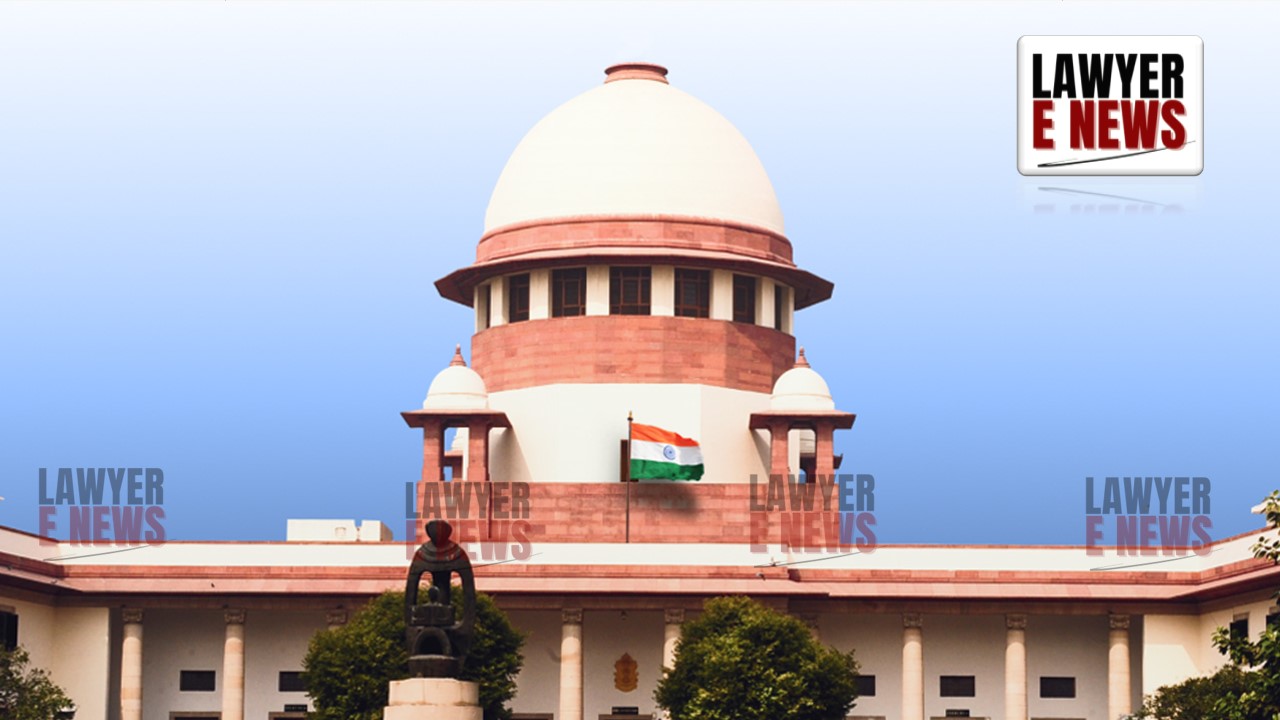-
by Admin
16 February 2026 1:47 PM



Denying Opportunity on Grounds of Disability is a Constitutional Travesty – In a momentous ruling Supreme Court of India shattered the rigid barriers of medical education by striking down an arbitrary regulation that denied a disabled student, Anmol, admission to the MBBS course. The Court denounced the National Medical Commission’s (NMC) insistence on the outdated “both hands intact” requirement as a flagrant violation of fundamental rights.
“This requirement is a relic of an exclusionary past. It is nothing short of glorifying ableism, and such a mindset has no place in a civilized society,” the bench emphatically declared, overturning the Punjab and Haryana High Court’s endorsement of Anmol’s rejection.
“Mechanical Interpretations of Disability Guidelines Are an Affront to Dignity”
The case emerged when Anmol, despite qualifying through the rigorous NEET-UG 2024 examination under the Persons with Disabilities (PwD) category, was denied a seat in an MBBS program. The Disability Assessment Board at Chandigarh ruled him ineligible without any functional assessment, solely relying on a mathematical calculation of his disability.
The Supreme Court condemned this rigid and mechanical approach, emphasizing that such arbitrary exclusions violate not just the Rights of Persons with Disabilities Act, 2016 (RPwD Act) but also the constitutional guarantee of equal opportunity.
“A disability is not an incapacity. To assume that a person with a disability cannot perform medical tasks without any functional assessment is a constitutional travesty,” the Court observed.
Dr. Satendra Singh’s Expert Report Prevails Over Medical Board’s Outdated View
In an unprecedented move, the Court had earlier directed AIIMS to form a special medical board, including disability rights expert Dr. Satendra Singh, to evaluate Anmol’s capability. While five out of six members of the board rigidly adhered to outdated NMC guidelines and disqualified Anmol, Dr. Singh conducted an in-depth functional assessment and concluded that Anmol could complete the MBBS program with reasonable accommodations.
“The failure to provide reasonable accommodations is a failure of the system, not of the candidate. The focus must be on enabling, not excluding,” Dr. Singh’s report asserted, which the Supreme Court accepted as the correct approach.
Rejecting the decision of the medical board majority, the Court stated, “An assessment that clings to a numerical percentage rather than the real-life ability of a person is arbitrary and discriminatory.”
“Authorities Must Facilitate Inclusion, Not Find Ways to Disqualify”
The Supreme Court underscored the importance of reasonable accommodations in education and employment, citing its recent judgment in Omkar Ramchandra Gond v. Union of India (2024), where it had ruled that “a mechanical and literal interpretation of disability regulations is unconstitutional.”
“The role of regulatory bodies is not to erect artificial barriers but to dismantle them. The approach should be how best to accommodate disabled candidates, not how best to disqualify them,” the bench asserted.
Immediate Admission Ordered, Policy Overhaul Demanded
Holding that “justice delayed is justice denied,” the Supreme Court directed that Anmol be immediately admitted to the MBBS course at Government Medical College, Sirohi, Rajasthan. The Court further directed the National Medical Commission (NMC) to submit an affidavit by March 3, 2025, detailing the status of its revised guidelines and mandating the inclusion of disability rights experts in the formulation of future policies.
With this ruling, the Supreme Court has set a powerful precedent for accessibility and inclusivity in medical education, ensuring that individuals with disabilities are given opportunities based on their actual abilities rather than outdated assumptions.
“A modern society must embrace inclusivity, not perpetuate discrimination through archaic norms,” the Court concluded, making it clear that the era of exclusion in medical education must come to an end.
Date of Decision: 21 February 2025
